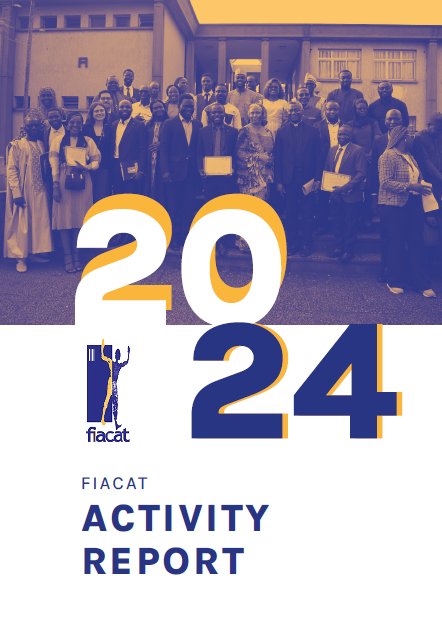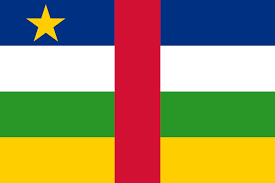Strengthening the fight against torture in Central African Republic (CAR): Workshops on the Convention against Torture (CAT), which celebrates its 40th anniversary this year, and its Optional Protocol (OPCAT)
From 22nd to 26 April 2024, the United Nations Multidimensional Integrated Stabilization Mission in the Central African Republic (MINUSCA) organized and financed two workshops: one on the drafting of an alternative report by civil society actors to the Committee against Torture, and the second aiming at sharing reflections, best practices and challenges on the role and implementation of a national preventive mechanism against torture (NPM). These activities were conducted jointly with FIACAT, the Treaty Body Capacity Building Programme of the Office of the High Commissioner for Human Rights in Central Africa (TBCBP - OHCHR/CARO) and the Subcommittee on Prevention of Torture and Other Cruel, Inhuman or Degrading Treatment or Punishment (SPT).
CAR ratified CAT and OPCAT on 11 October 2016, however, the country faces a considerable backlog in submitting its reports to the treaty bodies, particularly to the Committee against Torture, and no NPM has been established in line with OPCAT requirements. The security situation, marked by conflicts and clashes between armed groups since 2013, is an aggravating factor.
Central African authorities have nevertheless repeatedly expressed their intention to implement an NPM, as illustrated during the celebration of the 75th anniversary of the Universal Declaration of Human Rights (UDHR) in December 2023 where they pledged to implement this mechanism by the end of the first semester of 2024. The workshop on the implementation and role of NPMs began with opening remarks from High Representatives, the Minister of Justice, H.E. Mr. Arnaud Djoubaye Abazene, the Deputy Special Representative of the Secretary General, Ms. Joanne Adamson, and the Head of the Africa Group within the SPT, Professor Abdallah Ounnir. It continued with presentations and exchanges between representatives of the Ministry of Justice, including the Human Rights Officer of the Minister of Justice and members of the criminal justice system; representatives of the Ministry of Foreign Affairs; Central African Defense and Security forces; representatives of parliamentary network for human rights, as well as the President and Vice-President of the National Commission for Human Rights and Fundamental Freedoms (CNDHLF) and civil society organizations including ACAT CAR. The diversity of the participants and the valuable exchanges illustrated the common will to prevent torture in CAR.
The role of civil society in the work of both SPT and NPMs was presented by FIACAT and ACAT CAR and was emphasized by the Human Rights Officer of the Minister of Justice, who stressed the government's intention to strengthen the partnership between the government and civil society in promoting and protecting human rights.
On the eve of CAT's 40th anniversary, these activities remind us of the importance and timelessness of the Convention and its Optional Protocol in the fight to eradicate torture.
*FIACAT is a member of the United Against Torture Consortium (UATC), an EU-funded project which pools the strengths and expertise of six international organizations working to combat torture.
Press contact: Marion Valeray, Communication Officer : m.valeray@fiacat.org / +33 (0)6 95 19 66 74




